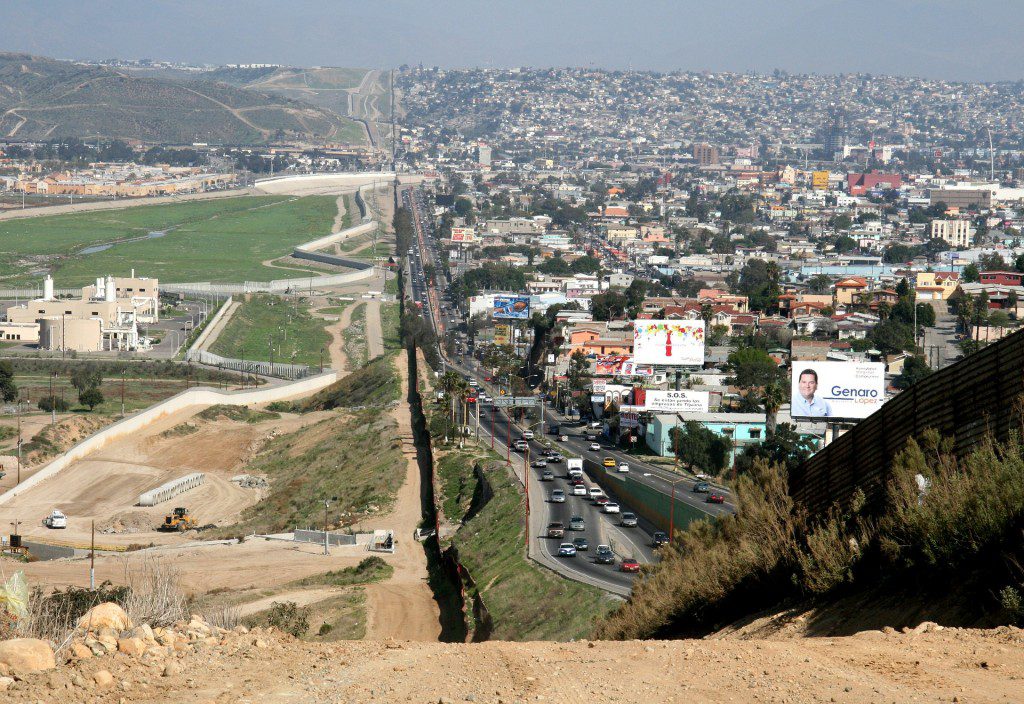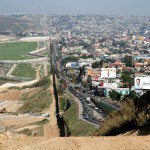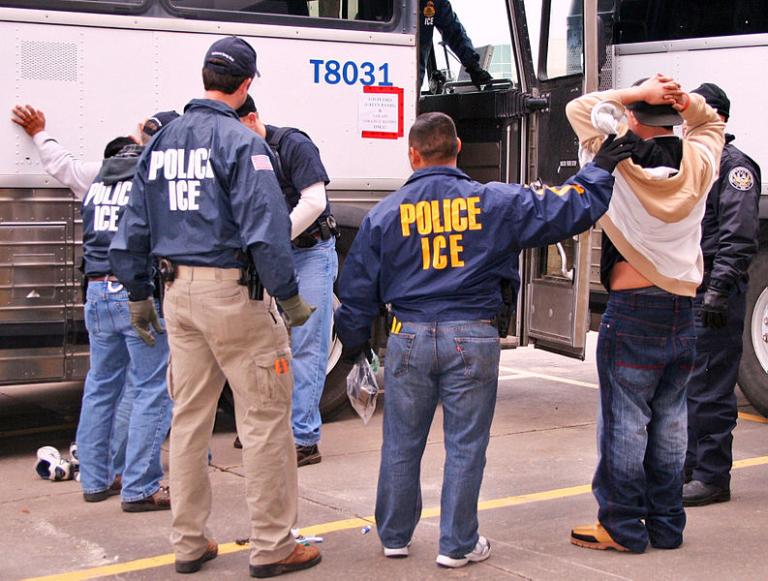
I raised the issue the other day, of what an appropriate compromise would be, that is, what trade-offs would take a step toward mitigating the ill effects of DACA/amnesty for minor arrivals in setting a general principle of “stay here illegally for a given length of time and we’ll treat you as having a right to stay.”
And in the meantime, various politicians and pundits are suggesting that the answer is “enhanced border security.” This proposal appears in an op-ed in yesterday’s Washington Post (which just appeared in my twitter feed), in comments by House Freedom Caucus Chairman Mark Meadows reported in The Hill, House Speaker Paul Ryan, and unnamed “GOP lawmakers” in a Politico report:
GOP lawmakers on Capitol Hill, from the top tiers of leadership down to key rank and file, are quickly coalescing around pairing a measure that codifies the Deferred Action for Childhood Arrivals program into law with some modest security and enforcement measures.
(But Politico simultaneously reports that Democrats say that any measures that increase deportation levels of existing illegal immigrants are completely off the table – which seems to suggest that there are no “enforcement” measures, at this point, that they’re willing to concede.)
But that’s not a serious plan. Off all of the potential actions that could be taken, this is the least effective — and, for some of these politicians, I suspect that this is intentional.
After all, at present, half of all illegal immigrants are here because they have overstayed their visas, not due to any illegal border-crossing at all. And there are no enforcement mechanisms being proposed that will impact this — not even tracking of overstays, let alone removal of these folks when their tourist, student, or other temporary visas expire, and certainly not a harder line on who we give visas to in the first place. Others arrive over water, not crossing over from Mexico at all. “Border security” will not reduce this type of illegal immigration at all.
In the second place, proposals of drones, a “virtual wall”, and increased border patrol manpower only serve to catch a greater number of border-crossers. It takes further political will to deport them immediately — if they’re able to claim asylum or other grounds for staying here, and, by learning the right claims to make, be given a hearing and released, then having caught them has no value at all.
There is, in this respect, a key difference between a physical wall and the so-called “virtual wall” — the physical wall prevents would-be migrants from border-crossing in the first place, a “virtual wall,” at best, still requires us to act to remove them from the country, which, all too often, the federal government has been unwilling to do.
But, beyond this — a change of law that requires, say, all employers to check legal authorization to work electronically, rather than just viewing some (potentially forged) documents and checking a box, once implemented, will be part of the employment bureaucracy. A change of immigration categories that allows residents to sponsor only their children, not their extended family, will be a part of the new immigration process. A formulation, in law, that Mexico is a “safe country” so that all asylum claimants who come through Mexico are ineligible for consideration, would be cut-and-dried.
And any measures that prevent illegal immigrants from working in the United States would be far more effective, by eliminating the “pull factor” of employment.
But border security? An appropriation for increased manpower, in one budget cycle, can be cut invisibly in the next one.
For a politician to claim that he is willing to end, or even reduce, illegal immigration, and then proffer “border security enhancement” as the tool he’ll use? Well, at a minimum, I’m suspicious. Perhaps they’re just more trusting that this will be effective than I am, but I judge it highly likely that such a politician simply doesn’t care about reducing illegal immigration and just wants to placate restrictionists in order to get the amnesty program he wants.
And, yes, I said the other day that a big part of the problem was lack of trust. On this issue, I don’t trust a man like Paul Ryan to follow through on actual reductions in illegal immigrants. And to imagine that Trump will competently implement an increase in border security funding, and that his successor will maintain it, is a joke. Even the above Politico article describes what’s envisioned as a “border surge,” which by it’s very nature, is temporary.
Image: from pixabay.com; https://pixabay.com/en/border-mexico-usa-united-states-62866/; public domain











